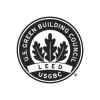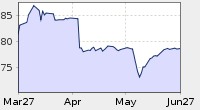Changes in LEED Standards Receive Negative Feedback
Posted by Sam Marquit in Energy saving No Comments» The General Services Administration (GSA) is looking at adopting new, stricter standards for their Leadership in Energy and Environmental Design (LEED) program, a system that gives businesses rewards for adhering to green practices in building design. Most people who want to build a world with better environmental standards would see this as a logical step forward, making progress towards a cleaner world. Unfortunately, certain industries, such as those that sell plastics, vinyl and chemical products are attempting to block the new set of standards.
The General Services Administration (GSA) is looking at adopting new, stricter standards for their Leadership in Energy and Environmental Design (LEED) program, a system that gives businesses rewards for adhering to green practices in building design. Most people who want to build a world with better environmental standards would see this as a logical step forward, making progress towards a cleaner world. Unfortunately, certain industries, such as those that sell plastics, vinyl and chemical products are attempting to block the new set of standards.
For those that have not heard of LEED, it is a rating system used to measure environmentally friendly construction. They use a 100-point system, whereby projects earn points in many different categories, such as sustainability, energy and water efficiency and other green practices. The more points a project earns the higher rating and more rewards it gets.
Industries are saying that certain parts of the newer standards are going to actually work against making greener projects. They claim that certain energy efficient products are being targeted and it will prompt builders to avoid using them, leading to a project actually being less environmentally efficient than it could be. One particular change that has these businesses up in arms concerns restrictions that they claim are arbitrary in nature. Some are even accusing LEED of having become a tool to be used against specific industries and spread lies about green practices.
The truth of the matter, however, is much easier to understand. These new standards are designed to help the environment by using researched methods and applying them. The standards currently in place are more than three years old and new developments and discoveries are being made every day. Up-to-date evaluations are needed to compensate for new information and technologies. I do not think that they are considering this when they make their complaints and are more likely focusing on the complications and expense that a change in regulations will bring.
It is especially important for these standards to be high in very large cities, where the environment is constantly under siege. If, for example, just 20% of Manhattan real estate were to comply with all the LEED standards, the city would enjoy a much more environmentally friendly outlook, producing less pollution and strain on resources.
Industries complain that people will cease using their materials if the new standards go through, but the system is one of rewards, not of punishments. No building materials that are already legal to use will be banned by the changes. The argument that LEED is being used to attack companies arbitrarily makes little sense to me. The main goal of the GSA is to promote green practices, which targets nobody in particular. Only the materials that are determined to be potentially dangerous or environmentally unsound are affected in any way. In addition, the system they use to approve each standard takes many opinions into account, including those from all aspects of the building process. They also make sure to remain very transparent, letting people know exactly what is going on with standard evaluation.
The only good I can see coming from industry resistance to the advancement of LEED is that there has been a brief push on voting for the changes. It can be difficult to keep up with standards that alter too frequently and in order for businesses to remain competitive they need time to adjust and prepare themselves. In the end, the regulations cannot remain years old without bringing the progress that we as an environmentally conscious people have made to a standstill. Personally, I think that if these businesses want to remain both competitive and environmentally responsible, they should probably spend less time and money lobbying to kill the new standards and instead concentrate on bringing their own practices up to date. All of our futures depend on looking toward a greener and cleaner planet Earth.
Sam Marquit, Professional Writer, Publisher & Editor. Website: home improvement





